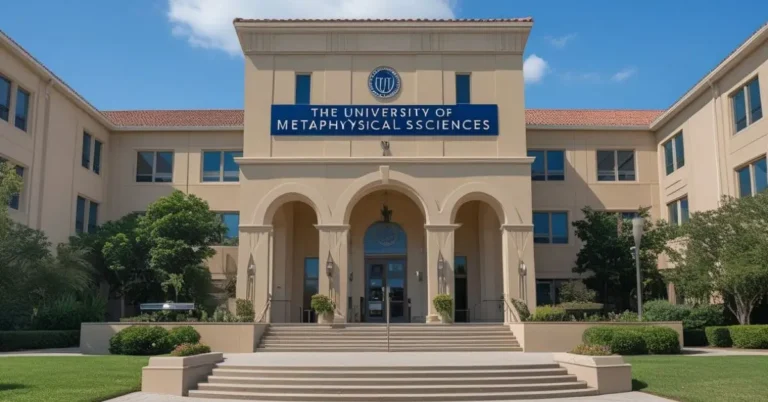The University of Metaphysical Sciences lawsuit has garnered significant attention within the metaphysical education community. This article delves into the details of the legal challenges faced by the University of Metaphysical Sciences (UMS), exploring the origins, allegations, legal proceedings, and the broader implications for metaphysical education.
Introduction
The University of Metaphysical Sciences lawsuit has been a focal point of discussion, especially with the upcoming trial scheduled for June 16–20, 2025. Understanding the nuances of this case is essential for students, educators, and stakeholders in the metaphysical education sector.
Background of the University of Metaphysical Sciences
UMS is an institution dedicated to providing education in metaphysics, offering programs that cater to individuals seeking knowledge in spiritual and metaphysical studies. Despite its commitment to education, UMS has found itself embroiled in legal disputes that have challenged its reputation and operations.
The Initiation of the University of Metaphysical Sciences Lawsuit
The legal saga began in 2017 when the International Metaphysical Ministry, Inc. (IMM), based in Sedona, Arizona, filed the first lawsuit against UMS. This initial legal action alleged unauthorized use of IMM’s trademarked names in online advertising campaigns, claiming that UMS’s practices could lead to confusion among prospective students.
Allegations Against UMS
The core allegations in the University of Metaphysical Sciences lawsuit include:
- Trademark Infringement: IMM asserts that UMS used its trademarked names without permission in online advertisements, potentially misleading prospective students.
- Unfair Competition: IMM accuses UMS of engaging in deceptive practices aimed at diverting business from IMM’s institutions.
UMS has consistently denied these allegations, maintaining that it has not engaged in any practices that would warrant such claims.
Legal Proceedings and Developments
The timeline of legal proceedings is as follows:
- 2017: IMM filed the initial lawsuit against UMS, alleging unauthorized use of its company name in web advertisements.
- 2019: A second lawsuit was filed by IMM, continuing the allegations of trademark infringement and unfair competition.
- October 14, 2021: IMM initiated the third lawsuit, titled “International Metaphysical Ministry, Inc. v. Wisdom of the Heart Church d/b/a University of Metaphysical Sciences,” filed in the U.S. District Court for the Northern District of California.
- July 18, 2024: A hearing was held where arguments were presented regarding the dismissal of the case.
- June 16–20, 2025: The trial is scheduled to take place, where both parties will present their cases, including evidence and testimonies.
Throughout these proceedings, UMS has maintained its innocence, asserting that it operates transparently and within the bounds of the law.
UMS’s Defense and Position
UMS has consistently denied all allegations, maintaining that it operates transparently and within the bounds of the law. The institution argues that the lawsuits are baseless attempts by IMM to stifle competition. UMS has expressed confidence in its defense, stating that it looks forward to proving its innocence in the upcoming trial.
Impact on the Metaphysical Education Community
The University of Metaphysical Sciences lawsuit has had several implications for the metaphysical education community:
- Student Perception: Prospective and current students may feel uncertain about UMS’s reputation and the value of its programs due to ongoing legal disputes.
- Industry Practices: The case sheds light on the competitive nature of metaphysical education and the lengths to which institutions might go to protect their interests.
- Regulatory Scrutiny: The lawsuit may prompt increased scrutiny of advertising and operational practices within the metaphysical education sector.
Conclusion
The University of Metaphysical Sciences lawsuit is a complex case that highlights the challenges faced by institutions in the metaphysical education sector. As the trial approaches, stakeholders await developments that could reshape the landscape of metaphysical education.
FAQs
1. What is the University of Metaphysical Sciences?
UMS is an institution offering programs in metaphysical and spiritual studies, aiming to provide comprehensive education in these fields.
2. Who filed the lawsuit against UMS?
The International Metaphysical Ministry, Inc. (IMM), based in Sedona, Arizona, filed the lawsuit against UMS.
3. What are the main allegations in the lawsuit?
The allegations include trademark infringement and unfair competition, with claims that UMS’s advertising practices misled prospective students.
4. When is the trial scheduled?
The trial is set for June 16–20, 2025.
5. How has UMS responded to the allegations?
UMS has denied all allegations, expressing confidence in its defense and commitment to transparency.
6. What impact has the lawsuit had on students?
Students may experience uncertainty regarding UMS’s reputation and the recognition of its programs due to the ongoing legal issues.
For a more in-depth understanding, you might find this video helpful:

